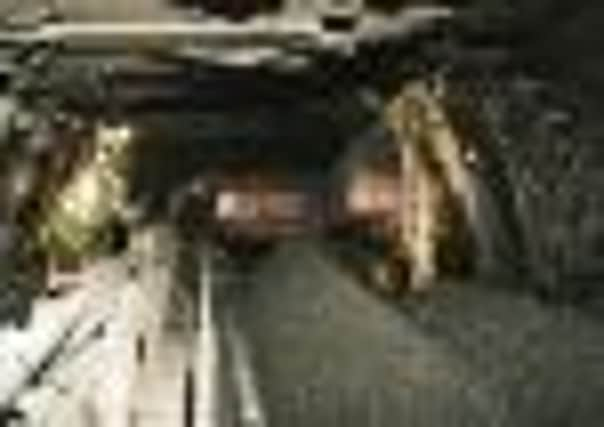UK Coal’s turnaround on track as group makes return to profit


The miner, which supplies around five per cent of the UK’s energy for power generation, said it traded in line with expectations in 2011.
Shares in the Doncaster-based group gained 10.2 per cent, rising 3p to close at 32.5p.
Advertisement
Hide AdAdvertisement
Hide AdUK Coal, midway through a turnaround led by chairman Jonson Cox, has been under pressure to cut debt and reform working practices after three years of poor performance.
Yesterday the group revealed it has agreed terms on pay and conditions at Daw Mill deep mine in the West Midlands, after warning it would close the pit unless it reached a deal with unions.
Bank debt has also fallen to £55m from £141m a year ago.
“It’s not over yet but it’s a good start,” said Mr Cox. “We’ve improved the productivity and our shift patterns are more efficient. We’ve delivered what we said we were going to do last year – not staggeringly ahead or behind.
“The really big thing is can we get Daw Mill to safely recover its production levels?”
Advertisement
Hide AdAdvertisement
Hide AdAnalysts expect the miner to report between £20m and £30m of annual pre-tax profits, after making first half profits of £22.1m.
The group said land sales were behind the big fall in bank debt. It sold £65m of land during the year, returning £3m of profit. UK Coal has since exchanged contracts on another £18m of land, bringing total sales to £106m since the fourth quarter of 2010.
“2011 has seen us put some momentum into property,” said Mr Cox.
“We’ve exceeded not only what we thought was possible, but what everybody thought was possible (on debt).”
Advertisement
Hide AdAdvertisement
Hide AdNet debt, which includes generator loans and pre-payments, was £139m at the end of 2011. This was down from £242.4m a year ago and £207.3m at the end of June.
The return to profit compares with pre-tax losses of £124.6m for 2010.
Despite a poor performance at Daw Mill, UK Coal mined 7.5m tonnes in 2011, up from 7.2m tonnes in 2010. Its opencast mines produced 1.8m tonnes in 2011, ahead of its expectations.
Kellingley deep mine in Yorkshire performed ahead of target, while Thorseby in Nottinghamshire was in line. However, Daw Mill produced “negligible” quantities of coal in December, despite increased working over Christmas and mining from two panels at once.
Advertisement
Hide AdAdvertisement
Hide AdTo boost output, the group has started more “intensive intervention” at the mine, including daily management conference calls, monitoring individuals’ daily performance, plus basing its team of recovery experts at the pit.
“If Daw Mill cannot make it, whether through managerial or workforce issues, we need to make sure the rest of UK Coal is preserved,” said Mr Cox.
He said instead of previous terms where Daw Mill’s miners worked for seven and a quarter hours – with three of these spent travelling to and from the face – staff will now work for eight to 10 hours. This will increase the amount of time the mine is cutting coal.
Included in the pay deal at Daw Mill, which employs about 800 staff, was a 4.7 per cent pay rise. However, UK Coal said it will hold costs per head at 2010 levels through to the end of 2013.
Advertisement
Hide AdAdvertisement
Hide AdAnalysts at joint house broker Numis Securities said: “UK Coal management have made very significant positive steps in 2011 over all areas, and while uncertainty on Daw Mill is an issue, we believe that the resolution of working practices, strong performances ex-Daw Mill and lower debt do demonstrate the group is moving in the right direction under chairman Jonson Cox.
“We... continue to see UK Coal as a special situation company with significant potential upside which is starting to be realised.”
Power division sale mooted
UK Coal is considering selling its Harworth Power arm, which is thought to earn profits of around £5m annually. The division traps and burns gas released during mining.
Some of the electricity generated is used at UK Coal sites, while the surplus is sold into the National Grid. “We would like to develop it,” said chairman Jonson Cox. “This is a very attractive asset. But we’ve got to pay down debt.”